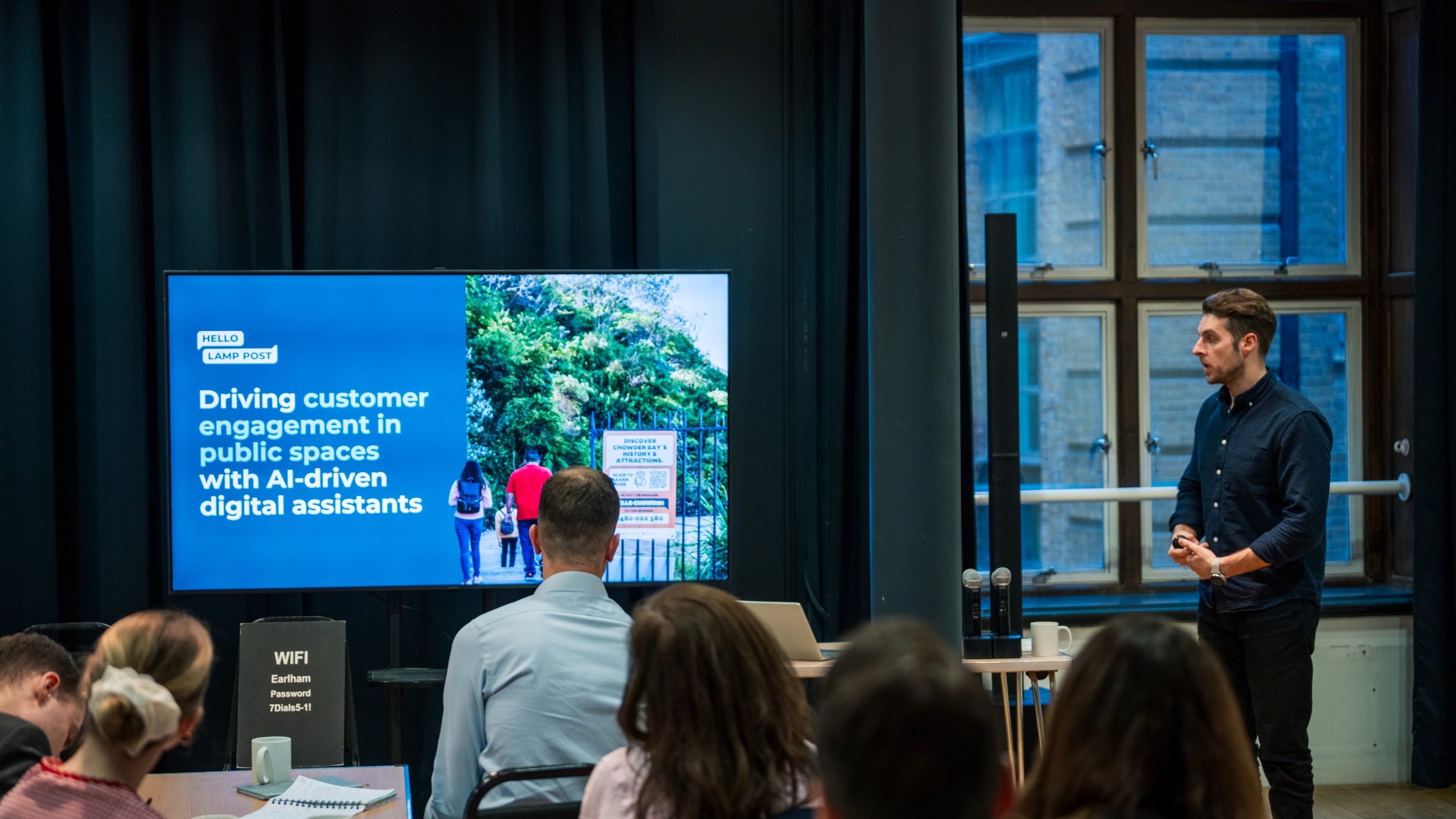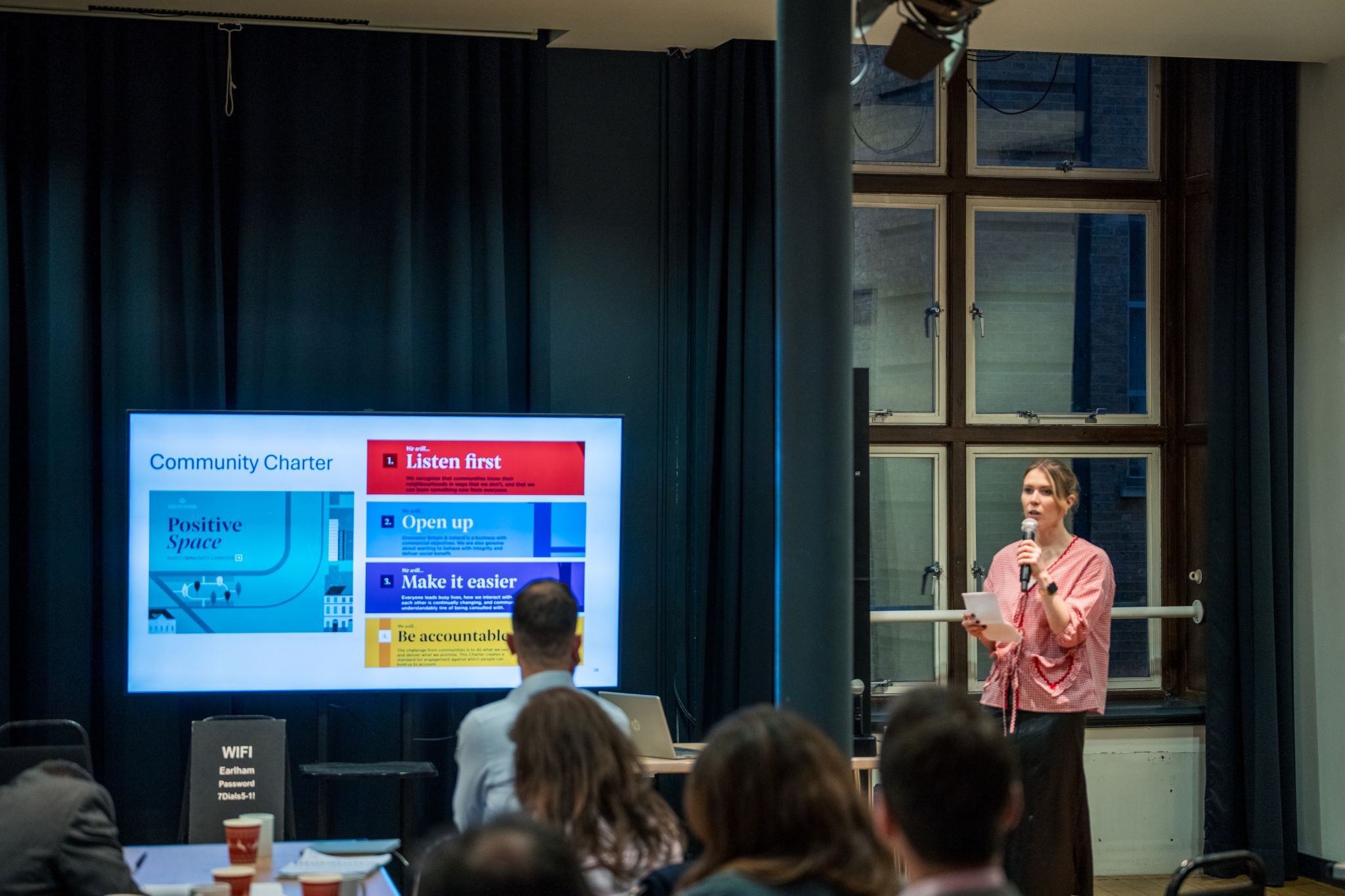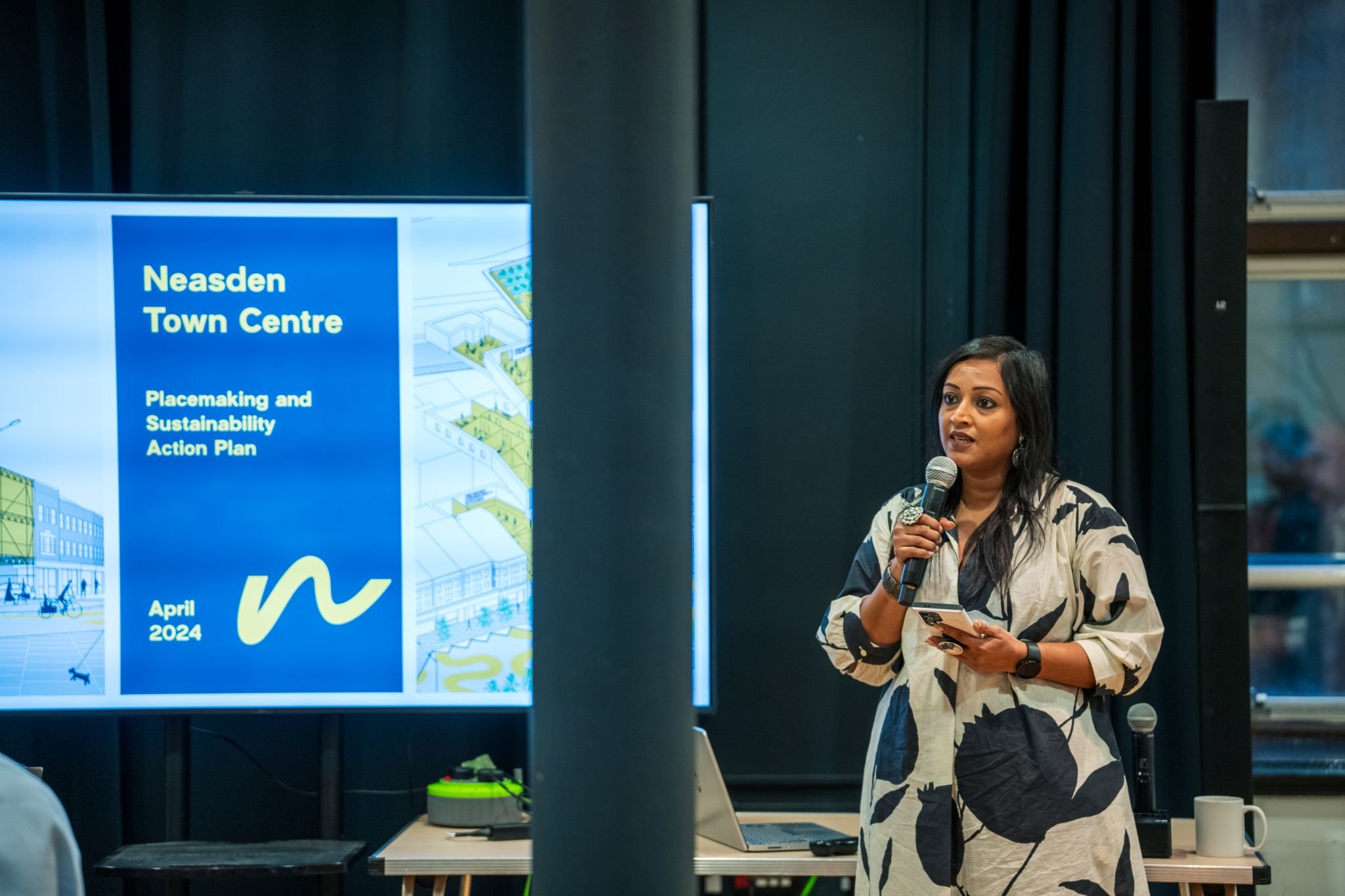The role of tech and AI in Community Engagement
Is AI an efficient assistant or a potential threat we should avoid?
Can we use AI to create better engagement with our communities?
On November 7th 2024, we explored the above questions and more at the LDN Collective’s interactive event “Tech and AI in Community Engagement”. The event, organised by the LDN Collective and chaired by CEO Max Farrell, was supported by Concept Culture and other LDN Collective members - ECF, edge Urban Design, Commonplace, You See Media, Rumi Bose, and Tim Ashwin.
The event began with an ‘open mic’ session where everyone shared their views and experiences of AI. This was followed by insightful presentations from tech and community engagement experts.
Concept Culture’s Creative Director Tanisha Raffiuddin was invited to present our work on the Placemaking and Sustainability Action Plan for Neasden Town Centre project as Place Branding Consultants for Brent Council. Concept Culture was part of the Design Team led by Sanchez Benton Architects, with Rumi Bose as the Stakeholder Engagement Consultant and Where Pathways meet as Sustainability Consultants.
Other presenters included:
Oliver Deed from ECF
Dorrian O'Neill from Commonplace
Tiernan Mines from Hello Lamp Post
Matt Rain from Digital Urban
Nicola Rochfort from Grosvenor
The event wrapped up with a lively and thought-provoking panel discussion on whether AI is a force for good, a potential risk, or perhaps a bit of both. In this blog, we have gathered the key takeaways from the event and hope to inspire further conversations about the future of AI in community engagement. Read also ECF’s report for detailed insights.
Max Farrell from LDN Collective.
Source: Lawrence Barraclough, You See Media
Do we trust AI?
When it comes to AI, trust is an unavoidable topic. This was evident during the open mic session, where attendees voiced concerns about the implications of AI. Can we trust the data it generates? How is our data stored and used?
These questions sparked a thoughtful discussion about both the positive and negative aspects of AI, emphasising the need to understand the consequences of using it in community engagement and the importance of building trust with the community. Building trust involves transparency, but also educating communities about how AI works and demonstrating its potential to create engagement in meaningful ways.
Oliver Deed from ECF (delivering his presentation remotely)
Source: Lawrence Barraclough, You See Media
AI as an inclusive tool
During his presentation, Oliver Deed from ECF highlighted how AI has the potential to make urban planning processes more inclusive by breaking down barriers to participation. AI tools can analyse large amounts of qualitative data, such as community feedback, helping planners gain insights into residents’ needs - tasks that would otherwise be time-consuming and overwhelming.
Dorrian O'Neill from Commonplace
Source: Lawrence Barraclough, You See Media
This technology also expands opportunities for public participation in decision-making, ensuring a wider range of voices are heard. Dorrian O'Neill from Commonplace demonstrated how AI can assist with sentiment analysis and theme identification, helping planners uncover key topics from community input, whether related to transportation, safety, or housing. Notably, these tools can process input in multiple languages, offering a more accessible and inclusive approach to engagement.
Tiernan Mines from Hello Lamp Post
Source: Lawrence Barraclough, You See Media
AI versus human responsibility
While AI has enormous potential, it is not without limitations. Tiernan Mines from Hello Lamp Post shared insights into the difficulty of fully replacing human presence with AI. Although AI can gather data and facilitate engagement, human intelligence is still needed to interpret that data effectively. AI excels at repetitive tasks and can engage with a broad audience, but it cannot fully replace the nuanced understanding and empathy that human facilitators bring to the table.
The role of AI should be seen as a tool for assisting rather than leading in engagement. AI can provide the infrastructure to reach a wider audience, but the final decision-making should still rest with the people. AI might help process input from diverse communities, but the heart of planning - ensuring decisions align with local values and needs - remains a human responsibility.
Matt Rain from Digital Urban
Source: Lawrence Barraclough, You See Media
AI and urban planning
Looking ahead, several speakers reflected on how AI could transform urban planning. Matt Rain from Digital Urban explained that case studies have shown that AI can create emotional connections with spaces and simulate environments to give people a sense of what a future development will feel like. This immersive experience can help communities visualise and engage with urban projects before they are built.
By combining AI with other outreach strategies, planners can develop a more personalised approach to engagement, catering to different learning styles and abilities, and creating greater inclusive community involvement.
Nicola Rochfort from Grosvenor
Source: Lawrence Barraclough, You See Media
AI and community identity
In her presentation, Nicola Rochfort from Grosvenor highlighted the critical role of digital engagement in urban development, as it offers valuable insights into a community's needs, aspirations, and challenges. She addressed the importance of developers and investors prioritising the creation and management of spaces that align with and embrace these community needs.
Tanisha Raffiuddin
Source: Lawrence Barraclough, You See Media
Tanisha echoed this sentiment when speaking about the Neasden Town Centre project, emphasising the importance of understanding the community's identity. Tanisha also spoke about the skepticism many communities feel towards developers, local authorities, and the growing role of AI in urban planning. As AI continues to play a larger role in shaping urban spaces, it is vital to keep communities informed about how their data is used and to ensure their concerns are heard and addressed.
Panel discussion (L TO R): Tanisha Raffiuddin, Tiernan Mines, Matt Rain, Nicola Rochfort, Dorrian O'Neill
Source: Lawrence Barraclough, You See Media
The future of AI
As we reflect on the role of AI, it is clear that it is here to stay and will likely play an even larger role in our lives moving forward. So, how do we address our concerns about AI? Will technology eventually replace personal interaction?
Our panel agreed that while AI can certainly enhance efficiency, it cannot replace personal connection. The human touch remains essential for creating trust and ensuring that engagement feels authentic. Community members still value face-to-face interactions and often feel more comfortable when they can speak with someone directly. Going to where the community is, whether online or offline, is still crucial in reaching the broadest range of voices.
As with any new technology, using AI for community engagement comes with its own set of risks. A major challenge is ensuring that the data collected is accurate and free from bias. If AI tools are built on flawed data or algorithms, they can reinforce existing inequalities and fail to accurately represent community concerns.
While AI holds great potential to improve efficiency, expand participation, and provide deeper insights, we can conclude that it must be used with care. Successful community engagement through AI requires transparency, human oversight, and a commitment to inclusivity.
Reflections from Max Farrell and Tanisha Raffiuddin
We caught up with Max Farrell and Tanisha Raffiuddin at the end of the event. Check out the video above to hear their reflections and key takeaways.
Let us keep the conversation going about AI and technology!
Looking to implement AI and community engagement in your placemaking strategy?
If you are looking for new ways to connect with your community through engaging storytelling, AI tools, and marketing campaigns, we are here to help.
Book a consultation with us today, and let us explore how we can effectively engage with your audience.









